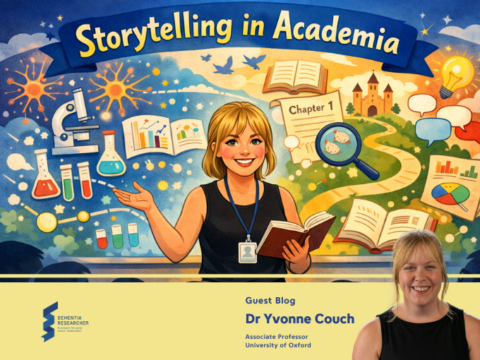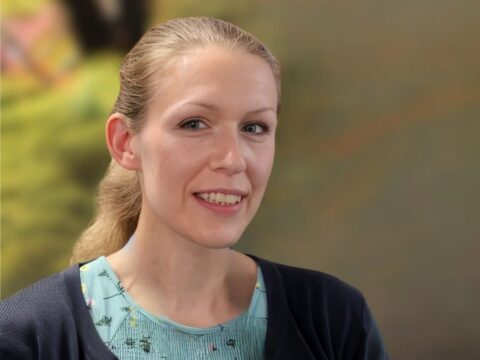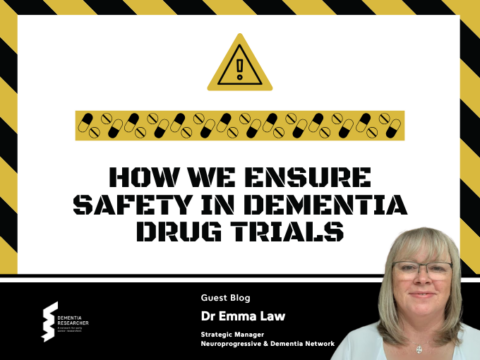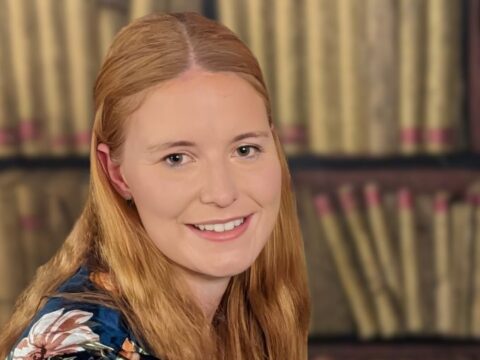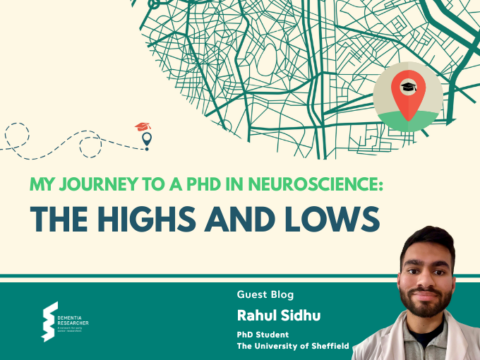Hi again, Hannah here. As I am approaching the end of the first year of my PhD and am preparing for my confirmation review, I am taking some time to reflect on the things that I did over the last year that made the first year of my PhD a little less stressful and little more enjoyable. If you are a new PhD student, are about to enrol or even just considering applying – this post could be good for you! So here they are, my top 10 tips for the first year of your PhD – from a first year PhD student.

 Pursue a research topic that you enjoy – Your PhD is a project conducted by YOU, driven by YOU and achieved by YOU. Sure – you have your supervisory team, but you are the pioneer of your own research. Therefore, it is fundamental that you are pursuing a research topic that you find interesting and enjoy. Not only will this topic define your workload for the next 3+ years, but you will also eat, sleep and breathe this topic. It will always be on your mind! So make sure that you love it and you see the value in it. Though this sounds like a no-brainer, this isn’t always the easiest step as the application process varies. You may decide to apply for a funded post whereby the topic is predetermined, that’s great – just make sure you read into it thoroughly first.
Pursue a research topic that you enjoy – Your PhD is a project conducted by YOU, driven by YOU and achieved by YOU. Sure – you have your supervisory team, but you are the pioneer of your own research. Therefore, it is fundamental that you are pursuing a research topic that you find interesting and enjoy. Not only will this topic define your workload for the next 3+ years, but you will also eat, sleep and breathe this topic. It will always be on your mind! So make sure that you love it and you see the value in it. Though this sounds like a no-brainer, this isn’t always the easiest step as the application process varies. You may decide to apply for a funded post whereby the topic is predetermined, that’s great – just make sure you read into it thoroughly first.
 Deciding on supervisors – Your supervisory team are there to support you and guide you through your PhD journey. This is a super close relationship, and they will be there throughout your ups and down. They are not there to tell you what to do – and neither should they. You are the lead, and they will simply provide you with knowledge and insight. Deciding on supervisors can be tough – especially if you are going to a new department and don’t know anyone. Look at people’s previous work, stalk their researchgate profiles and see if their interests align with yours. The more vested interest a researcher has in your PhD topic, the more input you are likely to receive.
Deciding on supervisors – Your supervisory team are there to support you and guide you through your PhD journey. This is a super close relationship, and they will be there throughout your ups and down. They are not there to tell you what to do – and neither should they. You are the lead, and they will simply provide you with knowledge and insight. Deciding on supervisors can be tough – especially if you are going to a new department and don’t know anyone. Look at people’s previous work, stalk their researchgate profiles and see if their interests align with yours. The more vested interest a researcher has in your PhD topic, the more input you are likely to receive.
 Talk to everyone! I was lucky enough to work in a research department before even considering a PhD – let alone enrolling. There I worked alongside many people who had achieved PhDs or were midway through. Speaking to them about their experiences really helped me when deciding to enrol and where to apply to. I know that not everyone will have the opportunity to work in research beforehand, so reach out to people – whether it’s on linkedin, twitter or even direct email. Most departments have site pages listing their current PhD students – chances are if you email them asking about their research and experiences, they will want to share!
Talk to everyone! I was lucky enough to work in a research department before even considering a PhD – let alone enrolling. There I worked alongside many people who had achieved PhDs or were midway through. Speaking to them about their experiences really helped me when deciding to enrol and where to apply to. I know that not everyone will have the opportunity to work in research beforehand, so reach out to people – whether it’s on linkedin, twitter or even direct email. Most departments have site pages listing their current PhD students – chances are if you email them asking about their research and experiences, they will want to share!
 Consider working in research first – Again, I realise this step may not necessarily be feasible for everyone – but working in a research department before enrolling onto my PhD really prepared me for what was to come. Not only did I come into my PhD with a set of developed research skills, but I also had a greater understanding of what my research interests were because I had explored them first! I also understood a lot of the practical aspects about research that could be daunting to people coming into a PhD without this experience, like how to systematically search databases and how to submit a paper to a journal.
Consider working in research first – Again, I realise this step may not necessarily be feasible for everyone – but working in a research department before enrolling onto my PhD really prepared me for what was to come. Not only did I come into my PhD with a set of developed research skills, but I also had a greater understanding of what my research interests were because I had explored them first! I also understood a lot of the practical aspects about research that could be daunting to people coming into a PhD without this experience, like how to systematically search databases and how to submit a paper to a journal.
 Ask people to read your proposal – You’ve never done a PhD before… so writing a proposal of what you intend to do for your PhD is a somewhat counterintuitive task and trust me this is not an easy document to prepare! If you are applying for funding for your own research idea though, this will be a necessary step. Writing a proposal in itself will allow you to further refine your research interests and map out your intentions. Asking someone to read this document with fresh eyes, preferably someone with research insights, will allow you to identify any elements that may be missing or you need to provide further clarifications for.
Ask people to read your proposal – You’ve never done a PhD before… so writing a proposal of what you intend to do for your PhD is a somewhat counterintuitive task and trust me this is not an easy document to prepare! If you are applying for funding for your own research idea though, this will be a necessary step. Writing a proposal in itself will allow you to further refine your research interests and map out your intentions. Asking someone to read this document with fresh eyes, preferably someone with research insights, will allow you to identify any elements that may be missing or you need to provide further clarifications for.
 Get organised! Such a cliché and vague thing to say to new PhD students I know, and everyone told me this too… But I’m going to explain what I actually mean by this. If you’ve just started or are about to start – organise your calendar. To start with, book in recurring fortnightly meetings with your supervisors, a couple months in you may want to decrease this to once monthly. Having this time blocked out will mean that you have a date to work toward, it’s scheduled and it’s useful for your supervisors too. They are super busy, and your PhD will be one of many projects they are working on – it is your priority but probably not theirs. When you attend meetings, come with an agenda. Lead the meeting with the points you want to cover, make sure you take minutes and conclude with actions to be performed before the next meeting. You can always circulate this after the meeting to see if your supervisors want to add to it. Block out time in your calendar for various activities – for example, 1 hour every morning to read papers you have identified. Visibly having this in your diary will help you to stay focused. Organisation is key!
Get organised! Such a cliché and vague thing to say to new PhD students I know, and everyone told me this too… But I’m going to explain what I actually mean by this. If you’ve just started or are about to start – organise your calendar. To start with, book in recurring fortnightly meetings with your supervisors, a couple months in you may want to decrease this to once monthly. Having this time blocked out will mean that you have a date to work toward, it’s scheduled and it’s useful for your supervisors too. They are super busy, and your PhD will be one of many projects they are working on – it is your priority but probably not theirs. When you attend meetings, come with an agenda. Lead the meeting with the points you want to cover, make sure you take minutes and conclude with actions to be performed before the next meeting. You can always circulate this after the meeting to see if your supervisors want to add to it. Block out time in your calendar for various activities – for example, 1 hour every morning to read papers you have identified. Visibly having this in your diary will help you to stay focused. Organisation is key!
 Get a referencing software and learn how to use it – This is actually a no-brainer. You are going to read hundreds of papers, you are going to need to cite them within your work – so you will need a referencing software that can store these. I personally use EndNote – I’ve heard Mendeley is also good. Take some time to start with to learn how to use the software, there are some really good tutorials on YouTube or your university’s library services may have some helpful references or even a course. Investing this time at the start will really help you later on.
Get a referencing software and learn how to use it – This is actually a no-brainer. You are going to read hundreds of papers, you are going to need to cite them within your work – so you will need a referencing software that can store these. I personally use EndNote – I’ve heard Mendeley is also good. Take some time to start with to learn how to use the software, there are some really good tutorials on YouTube or your university’s library services may have some helpful references or even a course. Investing this time at the start will really help you later on.
 Read but don’t over-read – Just one more paper… I just need to read one more right? I know the feeling, trust me! Having 20 tabs open on safari sufficiently slowing down your computer with papers you found along the way. It’s great to read a lot, and you really do need to. But reading without writing can be counterproductive. As part of your first year of your PhD you will do a thorough literature review – during this process you will extract information from the articles that you will then summarise. Of course before your literature review you will need to scope the literature – try making notes along the way, potentially even set up a spreadsheet of papers you have read and their key points. This will be super helpful for when you do come to your literature review, and also save you from accidentally reading the same text twice (yep… that really does happen!).
Read but don’t over-read – Just one more paper… I just need to read one more right? I know the feeling, trust me! Having 20 tabs open on safari sufficiently slowing down your computer with papers you found along the way. It’s great to read a lot, and you really do need to. But reading without writing can be counterproductive. As part of your first year of your PhD you will do a thorough literature review – during this process you will extract information from the articles that you will then summarise. Of course before your literature review you will need to scope the literature – try making notes along the way, potentially even set up a spreadsheet of papers you have read and their key points. This will be super helpful for when you do come to your literature review, and also save you from accidentally reading the same text twice (yep… that really does happen!).
 Put yourself out there – They say a PhD can be an isolating time period – this is because even though you have your supervisors, you are essentially working alone and not part of a project team. For me, this was heightened too by the pandemic and lockdowns. I haven’t actually been into university at all since my interview. It can feel daunting asking people to zoom with you, especially if you’ve never met them in person – and my inner introvert hated me for doing this, but it is really important to make peers within your department. Unless you already have friends that are researchers, the chances are your social group will not relate to a lot of your dilemmas. Having people to talk to that understand your situation is beneficial. I took this step by taking on the role of student rep for the postgraduate research committee. Not only did this allow me to learn more about the operations of the department, it gave me a great footing when talking to students and staff members alike.
Put yourself out there – They say a PhD can be an isolating time period – this is because even though you have your supervisors, you are essentially working alone and not part of a project team. For me, this was heightened too by the pandemic and lockdowns. I haven’t actually been into university at all since my interview. It can feel daunting asking people to zoom with you, especially if you’ve never met them in person – and my inner introvert hated me for doing this, but it is really important to make peers within your department. Unless you already have friends that are researchers, the chances are your social group will not relate to a lot of your dilemmas. Having people to talk to that understand your situation is beneficial. I took this step by taking on the role of student rep for the postgraduate research committee. Not only did this allow me to learn more about the operations of the department, it gave me a great footing when talking to students and staff members alike.
 Enjoy it! I know, another super cliché cringe ball thing to say. But really, a PhD isn’t meant to be painful. Of course it will at times feel that way, but particularly in your first year – enjoy yourself! Enjoy the new experience you are embarking on and be proud of yourself for doing so, it is such a big step to take. While you are developing and refining your research in your first year – utilise the opportunity to enrol onto classes and attend conferences. You will need to demonstrate a range of skills to achieve your PhD title – not just great quality research. To demonstrate communication, I took a class in Arabic for beginners! You will have the time to do things like this if you are organised (please refer to point 6 above haha). Utilise your time, but most importantly enjoy it! And make sure you take time off to do the things you love outside of your PhD too – a work-life balance is important.
Enjoy it! I know, another super cliché cringe ball thing to say. But really, a PhD isn’t meant to be painful. Of course it will at times feel that way, but particularly in your first year – enjoy yourself! Enjoy the new experience you are embarking on and be proud of yourself for doing so, it is such a big step to take. While you are developing and refining your research in your first year – utilise the opportunity to enrol onto classes and attend conferences. You will need to demonstrate a range of skills to achieve your PhD title – not just great quality research. To demonstrate communication, I took a class in Arabic for beginners! You will have the time to do things like this if you are organised (please refer to point 6 above haha). Utilise your time, but most importantly enjoy it! And make sure you take time off to do the things you love outside of your PhD too – a work-life balance is important.
There you have it, my top 10 tips for your first year! There are actually so many more insights to provide, the key one being how to prepare for your confirmation review – which is the assessment that you take at the end of the first year of your PhD. For my next blog I will run through what a confirmation review actually is, how to write the report for it and what to include, and how to prepare for the date! It’s a critical step in your first year and can at times feel over-emphasised and daunting. It shouldn’t impede upon your development opportunities though – especially if, yes you guessed it – you are organised!
Thanks for tuning in, Hannah.
Author

Hannah Hussain
Hannah Hussain is a PhD Student in Health Economics at The University of Sheffield. As a proud third generation migrant and British-Asian, her career path has been linear and ever evolving, originally qualifying as a Pharmacist in Nottingham, then Health Economics in Birmingham. Her studies have opened a world into Psychology, Mental Health and other areas of health, and with that and personal influences she found her passion for dementia.

 Print This Post
Print This Post
